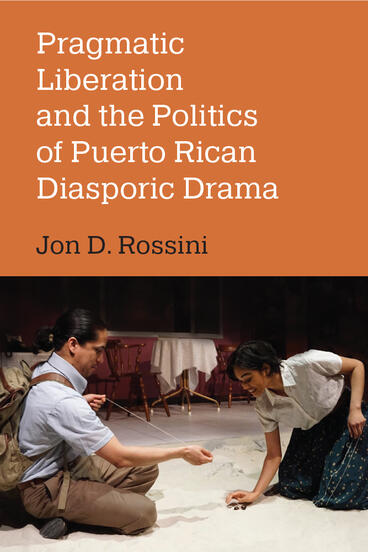Pragmatic Liberation and the Politics of Puerto Rican Diasporic Drama
Explores drama’s powerful capacity to model nuanced political action
Description
Pragmatic Liberation and the Politics of Puerto Rican Diasporic Drama explores the work of a unique group of playwrights—Puerto Rican dramatists writing in the United States—who offer a model of political engagement. As members of the Puerto Rican diaspora, they have a heightened awareness of the systematic discrimination and the colonial citizenship created by Puerto Rico’s territorial status. Pragmatic Liberation analyzes the work of established playwrights as well as work that has previously received little attention in the world of theater studies, including René Marqués’s Palm Sunday. The book demonstrates the strategies these playwrights use to model a nuanced way of moving toward liberation while being sensitive to the potential impact these actions might have on those closest to us. This is a crucially important model that needs more attention in our currently polarized political moment.
Jon D. Rossini is Associate Professor of Theatre and Dance and Performance Studies, at the University of California, Davis.
Reviews
“An expansive analysis of recent Puerto Rican theater and a compelling critique of the role theater and art play in imagining and inspiring transformative political action. The author’s focus on pragmatic liberation underscores the limitations of the theater’s engagement with political discourse, as well as the indirect and decentralized forms of political action that have characterized PR decolonial activism . . . a significant contribution.”
- Israel Reyes, Dartmouth College
“This timely book explores how Puerto Rican playwrights are thinking through a practical politics in response to enduring colonialism, racism, and inequity. It serves as a meditation on the power of drama in producing theoretical reflections on political action; while at the same time it provides a genealogy of contemporary Puerto Rican diasporic drama. A welcome addition to literary studies of the Hispanic Caribbean diaspora, engaging with a genre that has generally been neglected.”
- Camilla Stevens, Rutgers University-New Brunswick

